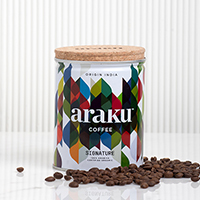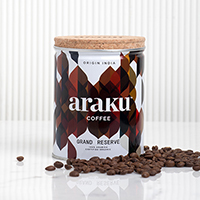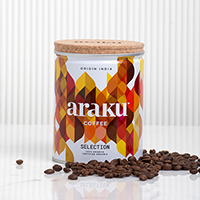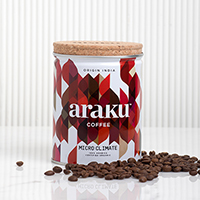GET 20% OFF
By subscribing to our newsletter
FROM BITTER TO BETTER: 5 WAYS TO REDUCE BITTERNESS IN YOUR COFFEE
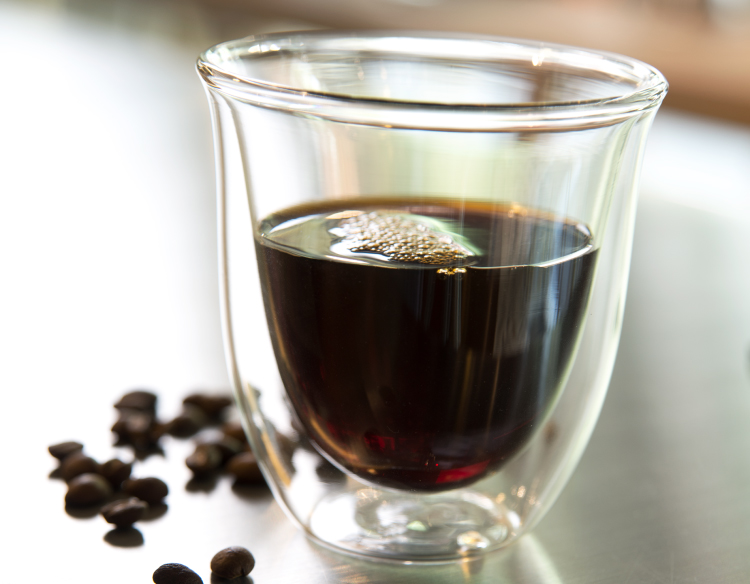
There are few things more disappointing than picking up a mug of much anticipated coffee, only to be overwhelmed by its extreme bitterness. Let’s say it’s a lazy afternoon and you’ve brewed a giant mug to keep you company as you pore over the new fiction bestseller - the last thing you want is for a pungent cuppa to dull your day of hygge.
Interestingly, a ton of people tend to associate coffee with bitterness. However, ask the caffeine aficionados and they’ll tell you that a good quality cuppa is always more flavourful than bitter. Ideally, you should be able to savour all the different notes - from floral to spicy to chocolaty, as bitter simply lingers in the background. Bitter notes in a pale ale may be a welcomed relief, in coffee, it might equate to sour, acrid or sharp. Subtle bitterness is a positive attribute we call acidity in coffee which can be good, bright, sparkling, adding life to the cup.
So if you’ve ever punched in “Why is my coffee bitter?” into the Google search bar, keep reading.
Below are some common reasons for bitter coffee.
1.Wrong coffee grind size
The grind of your coffee beans can greatly influence flavour. If they’re too coarsely ground, you’re likely to get a weak or sour tasting cuppa - the result of under-extraction. On the other hand, if they’re too finely ground, your coffee will probably seem extremely bitter - the result of over-extraction. The goal, of course, is to achieve a balance. The coffee grounds need to be soluble enough to lend good flavour but insoluble enough to not get in the way of the filter system. The solution? When purchasing beans, or ground coffee, ask the barista to suggest which grind is best for your brewing method. Understanding the relationship between brewing and grind size is paramount to an enjoyable cuppa. We recommend a ratio of 1:15, coffee to water. Experiment and until you find that sweet spot. Remember that different brewing methods require different grinds. For example, for a French press brew, you want the beans to be coarse and steep for 4 minutes before pressing. Taste and enjoy.
2.Water temperature
You may not realise it, but when it comes to coffee brewing, the temperature of water plays a key role. If the water is too hot, your coffee will seem bitter. Contrarily, if the water is too cold, your coffee will seem weak. The ideal temperature for extraction is somewhere between 90 °C - 96 °C. Water boils at 100 °C, so basically, you want to make sure that you don’t over boil it. Over boiling will rob water of oxygen making brewed coffee seem stale. Invest in a thermometer or if you want to do it the old-fashioned sensory way, take the kettle off the flame JUST before it reaches a rolling boil. Slowly pouring it over your grounds. That usually does the trick.
3.Low quality beans
This one’s probably the most obvious. The kind of coffee beans you use affects the flavour of your cuppa. Robusta beans - typically found in instant coffee - are more bitter and of poorer quality than Arabica beans. To beat the bitterness, we recommend buying good quality fresh roasted specialty coffee. Specialty coffee is consciously produced in special microclimates and terroir and is made with single-origin or single lot beans. Great attention to detail is given at each stage - right from the growing to the brewing. Consequently, a cup of specialty coffee is delicious, smooth, well-rounded, and definitely not annoyingly bitter. Don’t be fooled by the use of Gourmet Coffee. Read the fine print, selecting only Arabica, as a start. Seems like just shopping for Arabica premium coffee may solve your problem.
4.Over-brewing
An easy mistake is to let your coffee steep for too long. This is especially common with the French press. Many of us tend to leave the coffee in the French press even after pushing the plunger down. We leisurely sip our cuppa without realising that the coffee extraction still hasn’t stopped. The final pour will be more bitter than the first if left for some time. The fix? Transfer the coffee to another preheated container instead. Or even better, brew fresh, drink fresh. Making coffee in bulk may sound like a brilliant way to save time, but it will affect taste. French presses can actually brew less than a full pot each time, using the ratio of 1:15.
5.Dirty equipment
You may think that your brewing equipment doesn’t need to be cleaned every day. After all, you only made coffee - a quick rinse and you should be good, right? Well, not really. Residue coffee oils from your previous brew will negatively impact the flavour of your present cup. We recommend washing removable parts with an organic soap which has NO strong odors after every use. And don’t forget to give the reservoir the same TLC as the coffee pot and filter area.
Now that you know how to fix bitter coffee, why not order a designer tin of your favourite ARAKU Coffee and experiment at home? Share your cuppas with us at @arakucoffeein
